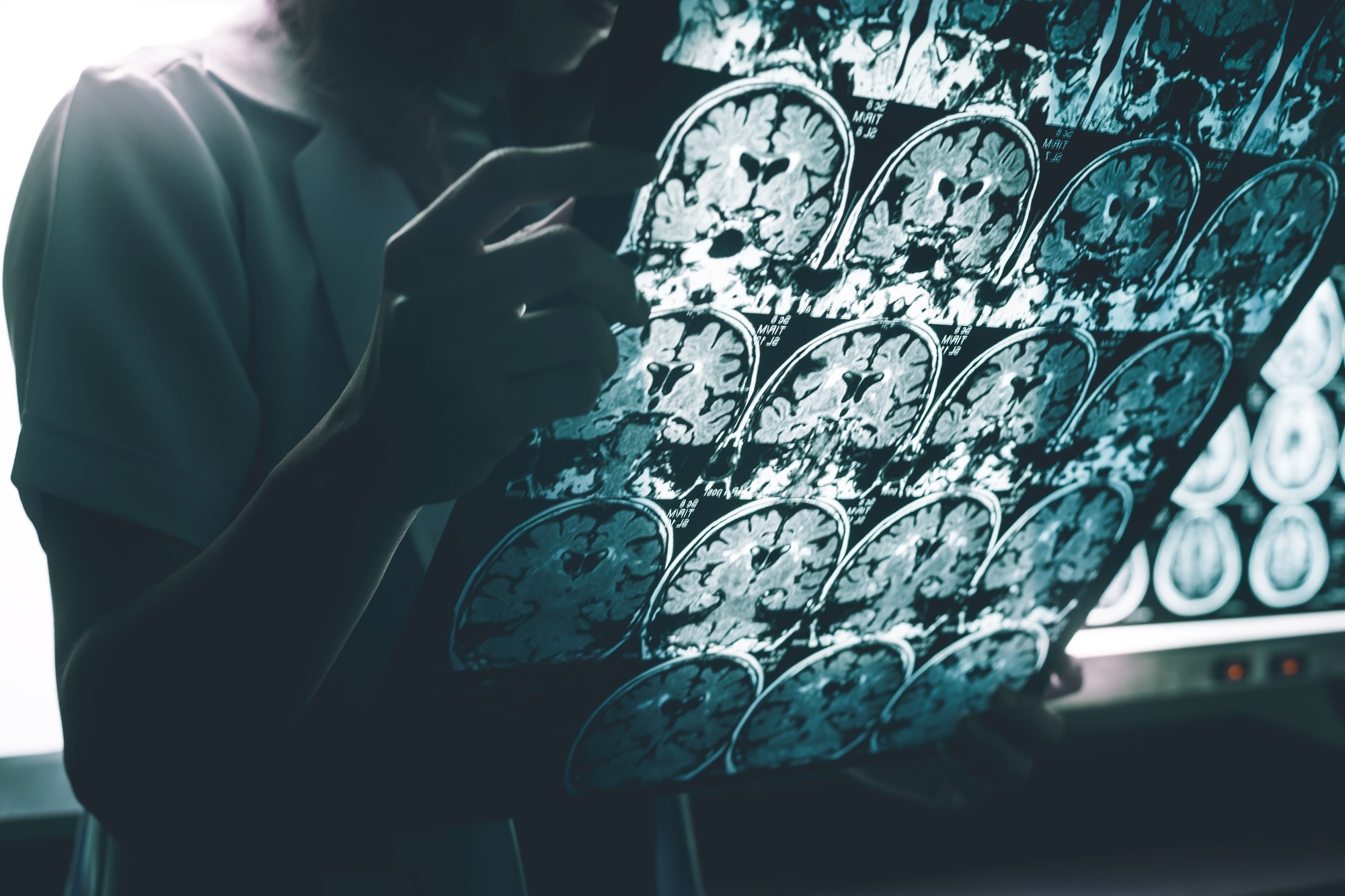Therapeutic ketosis has been used in neurology for about a century or the management of treatment-refractory pediatric epilepsy. However, the emergence of ketogenic interventions for other neurologic conditions happened slowly. In one of the first studies to evaluate the efficacy of ketogenic interventions in neurodegenerative disorders, a ketogenic diet was reported to benefit patients with Parkinson's disease (PD).
 Review: Ketogenic interventions in mild cognitive impairment, Alzheimer's disease, and Parkinson's disease: A systematic review and critical appraisal. Image Credit: Atthapon Raksthaput / Shutterstock
Review: Ketogenic interventions in mild cognitive impairment, Alzheimer's disease, and Parkinson's disease: A systematic review and critical appraisal. Image Credit: Atthapon Raksthaput / Shutterstock
Several studies suggest therapeutic ketosis as an effective intervention for AD, PD, and mild cognitive impairment (MCI). Both AD and PD result due to metabolically impaired synapses whose function can improve through alternative energy substrates. Progressive deficits in brain energy metabolism have been associated with the progression from MCI to AD. This suggests that interventions such as therapeutic ketosis can modify disease progression. Two hypotheses that provide some context are the 'alternative fuel' hypothesis and the 'signaling' hypothesis. The former applies to patients with more severe cognitive deficits, while the latter applies to patients in earlier neurodegeneration stages. Therapeutic ketosis can exert a more disease-modifying or even secondary preventive effect in earlier disease stages, reflected by changes in disease progression, biomarkers, and signaling pathways. However, this needs further research.
Drug Discovery eBook

Several methods have been developed to induce ketogenesis, including the traditional fasting and ketogenic diet and newer approaches such as a modified ketogenic diet and ketone supplements. Ketone supplements can include synthesized ketones bound to a ketone precursor in an ester compound, synthesized ketones bound to a salt, or a combination of both. Ketonemia can also be induced through the ingestion of ketone precursors such as medium-chain triglycerides (MCTs) that comprises lauric acid (C12), capric acid (C10), caprylic acid (C8), and caproic acid (C6). One important oral ketogenic compound for neurodegenerative disorders is AC-1202 which includes caprylic acid. Additionally, vigorous exercise can also aid in ketosis.
A new study in the journal Frontiers in Neurology aimed to review the available studies which support the clinical utility of ketogenic interventions in PD, MCI, and AD.
About the study
The study involved references from PubMed using a few key terms such as "neurodegenerative," "ketogenic," and "disorders." Further references were obtained from the references of the selected articles. Only articles that were published in English were included in the study. Only randomized, controlled clinical that analyzed the impact of ketogenic interventions for patients with PD, AD, and MCI were eligible. A few studies that assessed ketogenic interventions in the setting of normal aging were also included.
This was followed by the application of the American Academy of Neurology (AAN) Classification of Evidence framework. This framework classified individual studies as Class I, Class II, Class III, or Class IV using criteria that involve a publication's methodology, transparency, and outcomes. Recommendations for interventions were given the following grades, "A" (effective), "B" (probably effective), "C" (possibly effective), and "U" (data inadequate or conflicting).
Study findings
The results indicated that ten studies in AD were identified whose levels of evidence ranged from Class I to Class III and an overall ANN-based "B" grade. These clinical trials reported improved cognition associated with medium-chain triglyceride (MCT) oil supplementation among individuals with mild to moderate AD and are APOε4-. In addition, one study indicated that supplementation with MCT increased total brain metabolism in AD, while another reported increased regional cerebral blood flow in people with mild to moderate AD and are APOε4-.
Three clinical trials were identified in MCI, with many publications derived from the multi-phase BENEFIC trial dataset that provided a class II level of evidence and an overall AAN-based grade of "B." Many biomarker studies were derived from the dataset, which indicated that MCT supplementation was associated with increased brain ketone uptake, a reassuring cardiometabolic and inflammatory safety profile, and increased functional connectivity in the dorsal attention network.
Five studies were identified in PD, out of which one study provided class I evidence, another provided class II evidence, and the rest provided class III evidence. As a result, the overall ANN-based grade was reported to be "C" for non-motor features in PD.
Therefore, the current study demonstrates that ketogenic interventions can be effective for people with mild-to-moderate AD who are APOε4- and those with MCI. However, further research is required to optimize the use of ketogenic interventions in different clinical contexts as well as to make it more effective for patients who are APOε4+.
Limitations
The study has certain limitations. First, the AAN Classification of Evidence approach is mainly applied to assessing pharmaceutical interventions. Second, most of the included clinical trials were small studies. Third, an assessment of only diet or medium-chain triglyceride interventions was carried out.
- Bohnen, J.L.B. et al. (2023). Ketogenic interventions in mild cognitive impairment, Alzheimer's disease, and Parkinson's disease: A systematic review and critical appraisal. Frontiers in Neurology. doi: https://doi.org/10.3389/fneur.2023.1123290. https://www.frontiersin.org/articles/10.3389/fneur.2023.1123290/full
Posted in: Men's Health News | Medical Research News | Medical Condition News | Women's Health News
Tags: Aging, Alzheimer's Disease, Biomarker, Blood, Brain, Cardiometabolic, Compound, Diet, Efficacy, Epilepsy, Exercise, Fasting, Ketogenic Diet, Ketosis, Metabolism, Neurodegeneration, Neurology, Parkinson's Disease, Research, Supplements, Triglyceride

Written by
Suchandrima Bhowmik
Suchandrima has a Bachelor of Science (B.Sc.) degree in Microbiology and a Master of Science (M.Sc.) degree in Microbiology from the University of Calcutta, India. The study of health and diseases was always very important to her. In addition to Microbiology, she also gained extensive knowledge in Biochemistry, Immunology, Medical Microbiology, Metabolism, and Biotechnology as part of her master's degree.
Source: Read Full Article